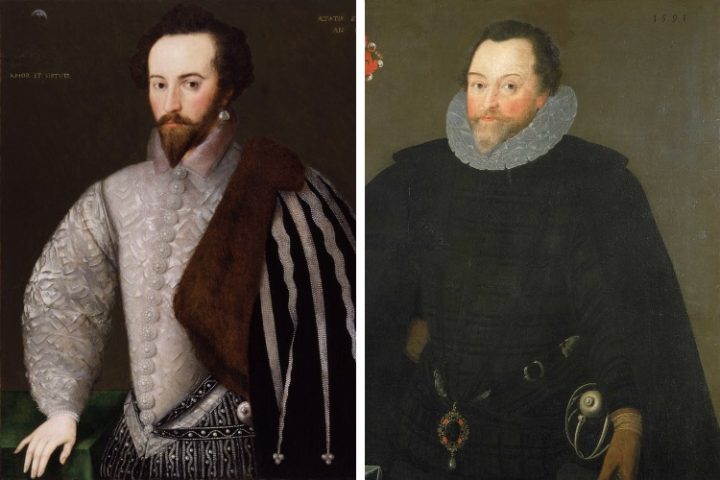
In the latest — but certainly not the last — effort to “cleanse” heroic figures of history from the memory of modern society, Exeter School in Devon, a private school in England, has announced intentions to erase the names of Sir Walter Raleigh and Sir Francis Drake from its buildings.
The Elizabethan-era naval heroes do not “represent the values and inclusive nature” of the school, parents were told. Louise Simpson, the school’s head teacher, argued that the two men had “less than positive connotations” in today’s society.
Raleigh and Drake were two of 10 names being scrubbed at Exeter, a school whose history can be traced back to 1633. Others supposedly no longer representing the “values and inclusive nature” of Exeter were philanthropists and benefactors.
Apparently, the way to demonstrate inclusive values at Exeter is to exclude two of the great heroes of English history. The move reminds one of the effort to remove the names of American heroes such as George Washington and Thomas Jefferson, and the efforts to smear the reputation of Christopher Columbus.
Walter Raleigh was, at one time, a favorite of Queen Elizabeth I, whose reign saw England emerge as the “mistress of the sea.” Raleigh — and Francis Drake — played critical roles in that emergence. Although Raleigh was likely one of many suitors of the “Virgin Queen,” who never married and never had any children, it is highly unlikely he ever threw his coat in the mud to keep her from having to get her feet dirty.
But she did like him, and she granted Raleigh permission to explore Virginia on the east coast of North America before it became a home for the first permanent English settlement at Jamestown. He raided Spanish ships and established a settlement at Roanoke Island (in what is now North Carolina) in 1587 — two decades before the settlement at Jamestown. He was unable to resupply the colony because the war with Spain in 1588 required all available ships to defend England. After the defeat of the Spanish Armada, supplies were finally sent to Roanoke, but the colony had vanished under uncertain circumstances in one of history’s greatest mysteries.
But Raleigh did bring potatoes and tobacco back to England, and he began planting potatoes on his Irish estate.
After Elizabeth’s death in 1603, the next monarch, James I, accused Raleigh of complicity in a plot against him, and he was charged with treason. Little evidence exists that Raleigh was actually engaged in any such plot, but he was convicted and eventually executed.
Raleigh was not allowed to cross-examine his accusers, and his conviction was seen by many at the time — and today — as unjust. However, historians believe that his trial and unjust conviction contributed greatly to the common-law right to confront accusers in court, a right enshrined in the American Bill of Rights. One of the judges at his trial later admitted, “The justice of England has never been so degraded and injured as by the condemnation of the honorable Sir Walter Raleigh.”
Another favorite of Elizabeth was a fellow sea captain, Sir Francis Drake. Drake dabbled in the purchase of slaves from African chiefs for a while, but he soon turned to raiding Spanish ships and lands. During this time, Drake crossed the Isthmus of Panama and viewed the Pacific Ocean. At that time, it was a body of water that was off-limits to anyone except Spanish shippers. He entered the Strait of Magellan at the southern tip of South America in 1578, and seized Spanish treasure at Valparaiso on the western coast of that continent. Although he failed to make it back to the Atlantic Ocean through what the European explorers called, and hoped would be, the “Northwest Passage,” he anchored for a time near what is now San Francisco.
Drake sailed west across the Pacific in 1579, then through the Indian Ocean to the Cape of Good Hope in southern Africa. After two years, he re-entered the waters of the Atlantic Ocean. Finally, in September 1580, he came into Plymouth Harbor, with a ship full of treasure and spices. Elizabeth knighted him, much to the dismay of the Spanish.
In the years leading up to the attempted invasion of England by the Spanish in 1588, Drake regularly attacked and plundered Spanish ships. He destroyed many Spanish ships that otherwise would have been part of the Armada that ultimately failed to conquer England.
Certainly, both Drake and Raleigh can be criticized for some of their actions, but without the exploits of these two Englishmen, Spain might very well have conquered England, and Exeter and other elitist schools like it might not even exist today. More importantly, had it not been for these two men, the English colonies on the coast of North America that eventually became the foundation for the United States would likely have never existed at all.
Perhaps that is the point for all of these efforts to destroy all traces of Western Civilization.



